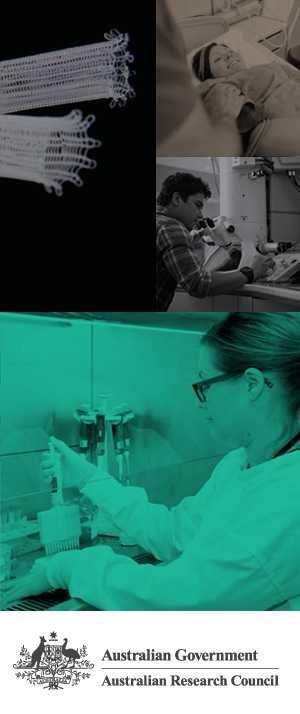'Five Star' ERA 2015 result
Research news
As well as being rated “Well Above World Standard” in the overall category of Medical and Health Research, a number of specific health disciplines at Deakin received the highest ERA rating of 5.
Whether helping to prevent obesity, developing national activity guidelines for children, fighting infectious diseases, or working on ground-breaking drug treatments for mental disorders, TB, diabetes, prostate cancer or malaria, Deakin’s researchers are making an enormous difference to health and wellbeing in Australia and across the globe.
Deakin’s health researchers have every reason to celebrate, with the announcement of the 2015 Excellence in Research for Australia (ERA) ratings today. These ratings identify research excellence within Australia’s higher education institutions, against national and international benchmarks.
Within the Deakin theme of “Improving Health and Wellbeing,” 10 specific disciplines (Field Of Research Codes) at Deakin were rated above or well above world standard, with six achieving the top rating of “Well Above World Standard” (5) and four achieving “Above World Standard” (4).
Deakin University’s Deputy Vice-Chancellor (Research) Professor Lee Astheimer said that this success reflected “exceptional effort, commitment and teamwork across the health and medical disciplines.”
“These ratings complete an outstanding year for medical and health research at Deakin,” Professor Astheimer said. “In other firsts for Deakin this year, five health academics were named as Highly Cited Researchers by Thomson Reuters, placing them in the top 1 per cent of researchers in their fields, and two of our Research Centre Directors, Professors David Crawford and Michael Berk, were inducted as Fellows of the prestigious Australian Academy of Health and Medical Sciences.”
Professor Astheimer added that in addition to publishing exceptional research work, academics in 8 of Deakin’s Strategic Research Centres are making important translational contributions to critical aspects of the nation’s health and wellbeing – from infant and child health, to nutrition, physical activity, infectious diseases, social and mental health, to disability, ageing and chronic illness.
“The flourishing School of Medicine, with our strong collaborations with health services in Melbourne and Geelong, the recently launched Geelong Centre for Emerging Infectious Diseases (GCEID), which is set to play a leading role in understanding and mitigating the threat of emerging and zoonotic infectious diseases, and success in competitive funding all reflect the very high calibre of our researchers,” she said.
Strong collaboration with industry is a further priority for Deakin, to ensure that its health research benefits the public. In a highly innovative project launched this year, Deakin’s Institute for Frontier Materials and its commercial partner HeiQ Australia have pioneered the industrial production of high-value short nanofibre materials on the Waurn Ponds campus. This world-first technology has transformed stem cell expansion techniques and is set to improve leukaemia treatment across the globe.
2015 ERA ratings - Improving Health and Wellbeing:
Well above world standard (ERA rating 5): Human Movement and Sports Science; Medical Microbiology; Neurosciences; Nutrition and Dietetics; Pharmacology and Pharmaceutical Sciences; and Medical Physiology.
Above world standard (ERA rating 4): Clinical Sciences; Nursing; Public Health and Health Services; and Psychology.
For more information on Deakin's ERA results within our other research themes:
Share this story
 Dr Kathryn Aston-Mourney is pioneering a new approach to diabetes research.
Dr Kathryn Aston-Mourney is pioneering a new approach to diabetes research.
